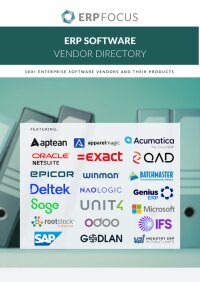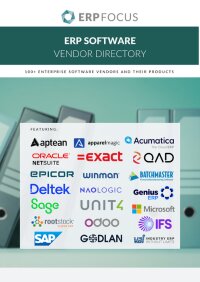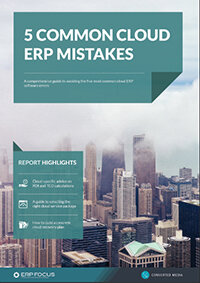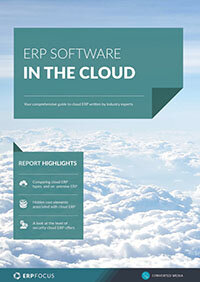Should your company go for hybrid cloud or multi-cloud ERP?
As ERP-driven companies continue to globalize, the application of information driven by cloud-based systems have become critical to the successful execution of commerce. However, there are a couple of different ways to leverage cloud platforms, since every system is different.
However, when weighing up hybrid versus multi-cloud ERP, things tend to get more challenging since the two variants really represent different sides of the same coin. To illustrate the point lets first refresh our understanding of these technical siblings by re-introducing the respective systems topologies, and their particular operational merits.
Hybrid cloud ERP
Hybrid cloud ERP is represented by an integrated data environment, created by ameld between private and public computing infrastructures. Consequently, each structure harbors different individual functions offering different technical work products. These are subsequently consolidated to deliver various serialized work products.
Hybrid cloud ERP advantages include:
- Integrated service values on demand
- Rapid extension of end-to-end business values
- Rapid integration and scaling, thereby leading to Enhanced information delivery on ad hoc basis.
- Previous sunk-dollar investments can be leveraged as necessary
Recommended reading: find both hybrid cloud and multi-cloud ERP vendors using our extensive ERP vendor directory, updated monthly.
Multi-cloud ERP
With multi-cloud ERP, system processes execute across multiple public computing environments in parallel. Most functions, work products, and load-balanced processes support and mirror each other, and any consolidated work products are available simultaneously.
Advantages of multi-cloud ERP include:- More powerful processing, typically
- Higher process performances than hybrid systems
- Immediate recovery in the event of omnibus-level systems failures
- Continuity concerns are mitigated
So, which way should your company lean when comparing these alternative views on the two cloud constructs? Well, the short answer is that it really depends on the scale of the enterprise.
In the case of hybrid cloud ERP, when considering enterprise private networks, ranging from small (FY $100,000) to mid (FY $50 million) scaled firms, it can be generally assumed that any previous network costs will have already been consumed, and that some degree of operating infrastructure will already exist. This means that the only thing that a firm will have to do is generate the private/public integration and set up the extended framework.
In the event, then this approach allows ‘smallish’ to ‘midish’ enterprises to behave like larger competitors, while avoiding the static ownership costs associated with a larger business infrastructure. As a result, hybrid cloud ERP fosters extended operational flexibility while holding the overall cost curve down.
However, if a large-scale enterprise wants expanded and/or more powerful processes, increased operational stabilities, or a desire to globalize on-demand, multi-cloud ERP would seem to be the more logical choice. The advantage of employing highly-robust public networks like AWS, for example, can pay enormous dividends across any of the aforementioned areas interest.
On the cost side alone, extended proprietary networks can consume enormous amounts of money, and considerations related to up-scaling can be an even more daunting challenge from a bottom-line perspective. Cost concerns can be further exacerbated by the threat potential lost business continuity in the event that an infrastructure goes down.
So, as I said, depending on the scale, either hybrid or multi-cloud can play nicely in today’s business climate. However, as I said earlier, every system is different, so ensure that you do your homework before you take your checkbook out.
Free white paper

ERP Software Vendor Directory
Put the most comprehensive ERP vendor directory on your desk today

Featured white papers
-

Five common cloud ERP mistakes
Get your comprehensive guide to avoiding the five most common cloud ERP errors
Download -

Related articles
-

Why you shouldn't underestimate cloud ERP consultant costs
Make sure to take the cost of a consultant into account when planning your cloud ERP budget
-

Secret KPI: Why Your ERP Implementation Team Matters More Than Software
Learn how Godlan ensures successful ERP implementation for manufacturers with proven strategies &...
-

Cloud ERP vs on-premise ERP: an objective comparison
Are you choosing between cloud ERP and on-premise ERP? This balanced guide will help

